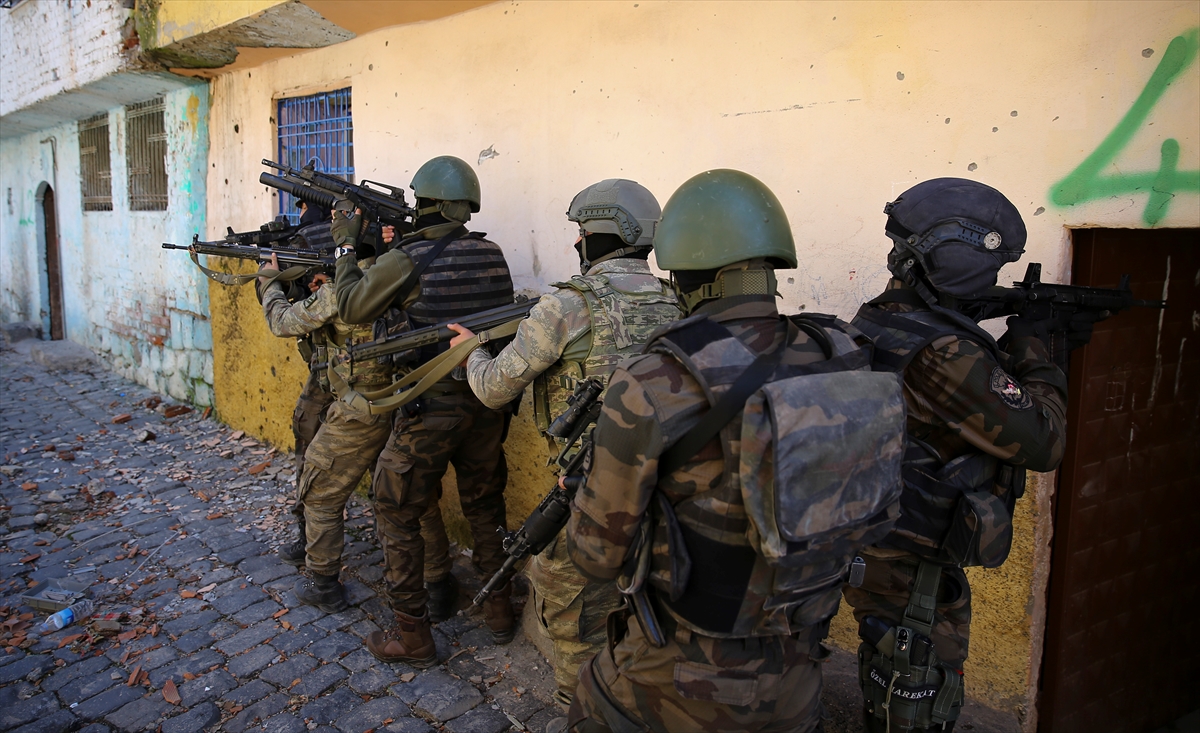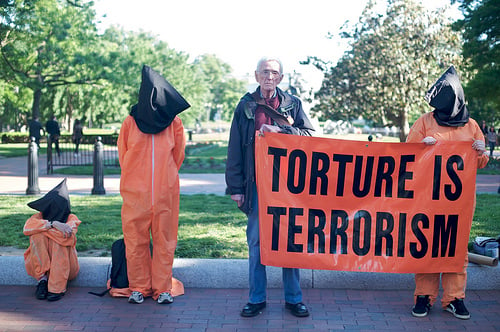
Soldiers patrol a street as Turkish security forces carry out a counterterrorism operation against the PPK in Turkey’s Southeast.
A Brief Introduction
Turkey has been exposed to many terrorist threats for more than 30 years. Terrorist attacks have claimed the lives of thousands of Turkish citizens and led to enormous economic losses. According to Turkey, the EU, NATO and the U.S. State Department, the Kurdistan Workers’ Party (PKK) is a terrorist group whose activities have directly resulted in the death of Turkish citizens including women and children, many of whom were ethnic Kurds.
The Turkish government and the PKK have agreed to a ceasefire in order to find a resolution to the decades-old Kurdish issue in Turkey in March 2013. However, after the Turkish general election of June 2015, the peace process broke down and tensions metastasized into armed conflicts between Turkish security forces and the PKK in Southeast Turkey.
Customarily, the PKK’s acts are examined in the context of “domestic terrorism.” Domestic terrorist acts occur primarily within the territorial jurisdiction of the states and involve acts dangerous to the human life of civilian populations. On the contrary, international terrorism occurs primarily outside the territorial jurisdiction of the states or transcends national boundaries in terms of the means by which they are accomplished, the population they target, or the location from which their perpetrators operate or seek asylum.
Applying International Humanitarian Law to Counterterrorism Operations
At first sight, humanitarian law does not seem to be applicable to terrorist acts. Even the law of non-international armed conflicts has specified that it does not include terrorist acts. However, according to article 2 of the 4th Geneva Convention (1949), “in addition to the provisions which shall be implemented in peacetime, the present Convention shall apply to all cases of declared war or of any other armed conflict which may arise between two or more of the High Contracting Parties, even if the state of war is not recognized by one of them.” In this respect, terrorist groups have the capacity to use force similar to states’ military. Nevertheless, one of the most important questions is what the terrorism and who the terrorist is.
There is no universally agreed definition of terrorism. However, it’s undeniable that terrorism involves illegal activities by non-state actors in response to particular state policies. Terrorism involves the use of violence—without discrimination between civilians and combatants—in order to achieve certain political, religious or economic aims. Typically, bombings, armed attacks, hijackings, assassinations and hostage-takings are the tactics used by terrorists. With this definition in hand, the PKK is a non-state actor that employs terrorist tactics to demonstrate its opposition to a discriminatory political order existing in Turkey since the 1980s.
The developments after the attacks on September 11, 2001, have raised the importance of international humanitarian law in the fight against terrorism. The law covering armed conflicts has foreseen some of the constraints in any counterterrorism operations. Even if the non-state actors are regarded as “offensive civilians” or “unlawful combatants,” responses to terrorist attacks have been limited by humanitarian law rules. For example, massive counterattacks against location with high civilian density are not compatible with the principle of distinction between civilians and combatants.
In fact, indiscriminate killing of civilians in order to fight terrorism in the region is unacceptable. Such a collective punishment will cause civilians’ injuries or unnecessary suffering and possibly lead to a humanitarian crisis. In this respect, article 48 of the Protocol Additional to the Geneva Conventions of 12 August 1949, and relating to the Protection of Victims of International Armed Conflicts (Protocol I) confirms that “In order to ensure respect for and protection of the civilian population and civilian objects, the Parties to the conflict shall at all times distinguish between the civilian population and combatants and between civilian objects and military objectives and accordingly shall direct their operations only against military objectives.”
However, implementation of humanitarian law by the states during counterterrorism operations is challenging. Generally, the forces fighting against terrorism violate the legal prohibitions during their military operations. For instance, there are many examples of torture and inhumane or degrading punishment of prisoners. The states’ brutal response has actually led to an increase in the number of terrorist attacks.

After the attacks on September 11, 2001, the states’ use of excessive force in the fight against terrorism has not been compatible with the basic rules of humanitarian law. The upholding of humanitarian law and human rights during counterterrorism operations is key to the elimination of terrorism. Even though some states that have espoused “violence” as an efficacious and prior method to fight against terrorism have failed, they are applying this method insistently. Nonetheless, it can be percieved that some states have changed their methods in the fight against terrorism by espousing the fighting methods based on fundamental rules of human rights and the rule of law.
As a result of emerging clashes in Turkey’s southeast after the general election of June 2015, several areas—such as Cizre, Silvan, Silopi and İdil—have been under curfews. During the armed engagement between security forces and the PKK, anyone on the streets risked being shot, in contradiction with the principle of distinction between civilians and combatants. Under the principle of distinction, an attack on a civilian population or civilian property is prohibited. To ignore what is happening to civilians would only confirm the widely held belief in the southeast that when it comes to counterterrorism operations against the PKK, there are no limits.
The main purpose of terrorist attacks is to propagate violence. Yet, one of the most important responsibilities of a government is to protect its citizens. In other words, a state cannot harm its civilians even if it justifies its actions as part of a “war on terror.”